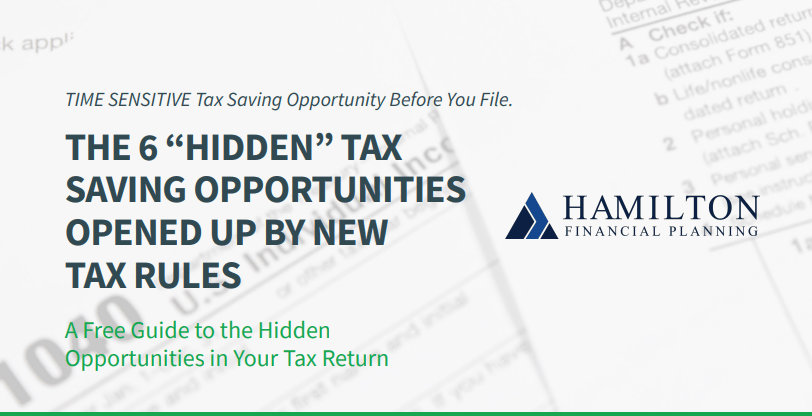
By Scott Hamilton
Do you ever feel like your bank account balance is on a wild roller coaster ride? You’re not alone.
Commission-based salespeople, independent contractors, freelancers, and many others whose income isn’t consistent experience unique challenges in balancing their budgets and managing their taxes.
At Hamilton Financial Planning, many of our clients are self-employed and struggle with fluctuating income budgeting and taxes. To help, I wrote this article as a guide for efficient financial planning even if your income varies from month to month.
Table of Contents
Planning Your Taxes
For W-2 employees, tax planning is only necessary once a year. Since estimated taxes are already deducted from their paychecks, their only concern is filing their taxes in April. But when you’re self-employed and your income varies from month to month, taxes are a bit more complicated.
Take a look at these strategies for managing taxes with a fluctuating income.
- Estimated Taxes – Due Dates: Self-employed people must pay their taxes directly to the IRS on a quarterly payment basis. Being your own boss means that you’re responsible for tallying your tax liability and submitting quarterly payments to the IRS. IRS 2024 Estimated Tax Payment Due Dates
- Estimated Taxes – Amount Owed: It’s especially hard to determine your tax bill if your income varies. Underpaying puts you in danger of penalties; overpaying puts you at risk of giving the IRS an interest-free loan. Calculate Your Estimated Taxes
- Create a Tax Plan: Making a tax plan is the next step after figuring out how much tax you should pay. Although it’s generally recommended that self-employed people set aside 25-30% of their revenue for taxes, the precise amount varies depending on several factors, including your business structure, tax rate, and state of residency.
- Keep Track of Deductions: When you’re preoccupied with handling your erratic income, it’s easy to lose track of your expenses. But to benefit from every deduction, it’s critical to record as much as you can. Self-employed workers have dozens of expenses they can deduct.
- Submit Payments Electronically: E-filing your tax payments offers several benefits, including quick delivery, an easily accessible and reliable trail of your tax payments, and zero chance your check gets lost in the mail.
Balancing Your Budget
Creating (and sticking to!) a budget, regardless of your income stability, is essential.
However, budgeting with a fluctuating income requires special strategies. Tracking your income and expenses, prioritizing essential expenses, setting aside funds for irregular income months, building an emergency fund, and adopting a flexible spending plan help you pursue financial stability.
- Track your income and expenses: For several months, keep thorough records of your income and expenses. This can help you determine your spending patterns and your average revenue flow.
- Prioritize essential expenses: By prioritizing essential expenses, you avoid falling behind on crucial bills like rent and food. An added benefit here is defending yourself against financial stress and potential debt spirals.
- Set aside money for irregular income months: It’s critical to create a buffer for hard times, especially when your income is erratic. When things are going well, put some money into a savings account you’ve set aside for sporadic shortfalls in income. Consider it a safety net for your finances.
- Build an emergency fund: Having an emergency fund is essential for handling changes. Try to set up three to six months’ worth of living expenses in case of unexpected bills or income gaps. In months when income is strong, look for ways to save. To increase your buffer, set up automatic transfers to a high-yield savings account.
- Adopt a flexible spending plan: Review your budget frequently and make necessary adjustments to cover your changing spending patterns and income. Be ready to modify your monthly spending according to your income. Set up money for necessities first, then be lenient with optional purchases.
We’re Here to Help
If any of the budgeting and tax strategies outlined above feel daunting, reach out for help.
At Hamilton Financial Planning, our financial planning services are designed to serve as your road map, helping you navigate whatever comes your way. Whether it’s tax planning, cash flow management, or something else, we can help you map out a strategy to guide you toward long-term financial confidence.
You can schedule a complimentary get-acquainted meeting online or reach out to us at 512-261-0808 or scott@hamiltonfinancialplanning.com.
About Scott
Scott Hamilton is founder and chief financial officer at Hamilton Financial Planning, a wealth management firm that specializes in providing comprehensive financial planning for retirees. With over 20 years of experience in the financial industry, and having completed over 250 financial plans for retirees across all industries, but mostly the oil and gas industry, Scott is passionate about providing his clients with the tools and insight they need to pursue their financial goals. He has a Bachelor of Business Administration in finance from Texas State University and an MBA in international finance from Pepperdine University. Scott has also been happily married to his wife, Gayle, for over 25 years. To learn more about Scott, connect with him on LinkedIn.

